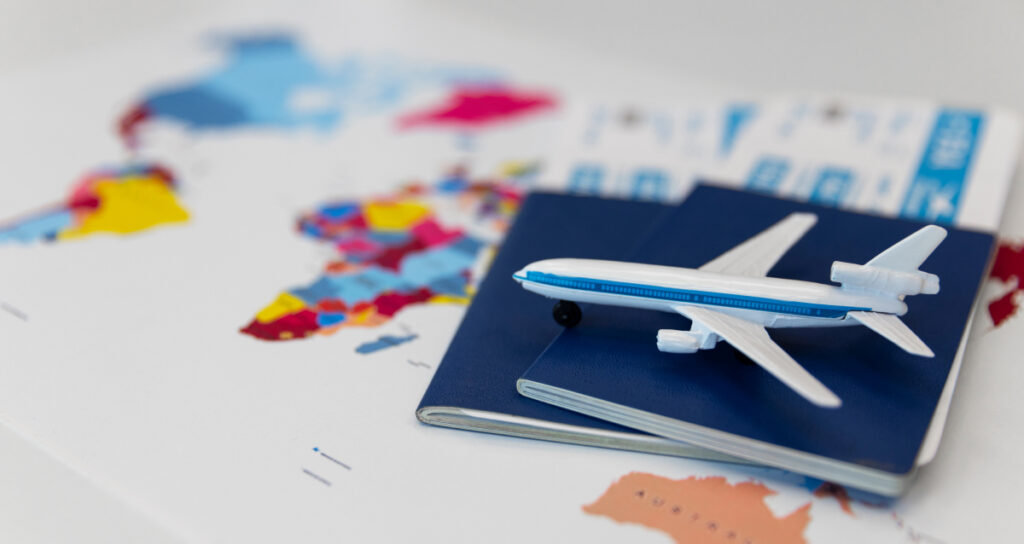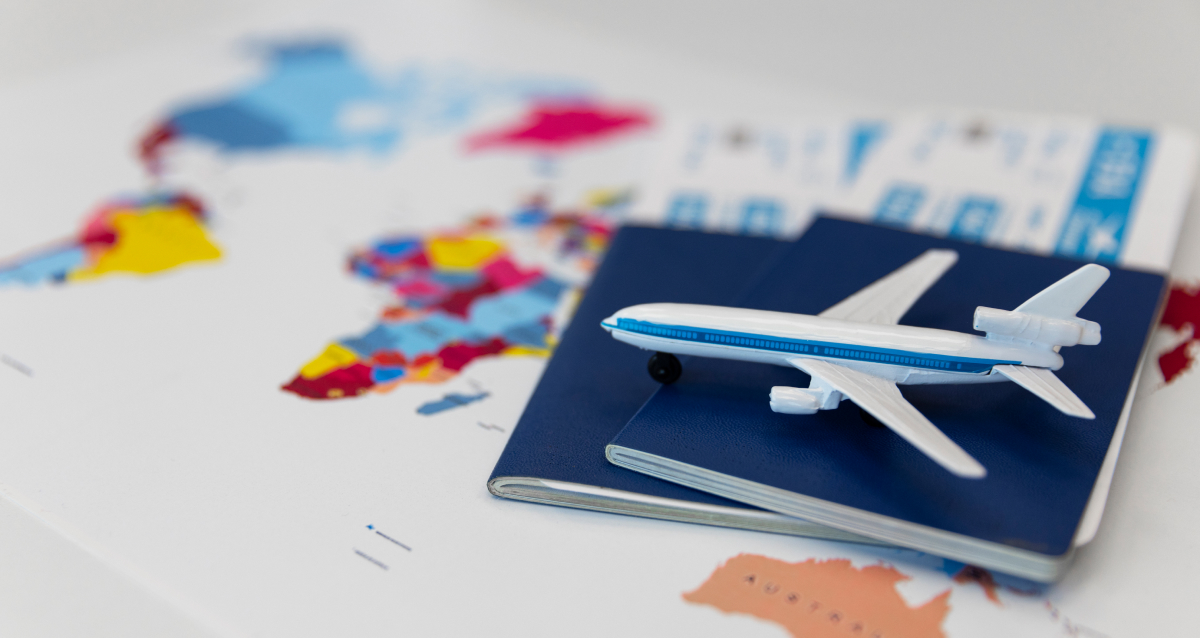
Business travel is inherently expensive, encompassing various costs such as airfare, accommodation, meals, and ground transportation. Fluctuating ticket prices, peak travel times, and the need for last-minute bookings contribute to elevated expenses. Accommodations in central business districts and corporate-friendly hotels also come at a premium. Additionally, dining and incidental expenses can escalate rapidly, impacting the overall budget.
Incorporating cost-effective choices into a corporate annual travel plan is paramount for fiscal responsibility and long-term financial health. Business travel expenses can significantly impact the bottom line, encompassing airfare, accommodations, meals, and incidental costs. Through strategic planning, negotiation, and employee awareness, companies can strike a balance between fulfilling business objectives and managing costs effectively in their annual travel plans.
What is Annual Travel Plan?
An annual travel plan is a strategic document outlining an organization’s approach to managing and facilitating employee travel throughout the year. This plan typically includes details about the company’s travel policies, guidelines, and preferred practices to ensure consistency and cost-effectiveness.
Key components of an annual travel plan may include:
Travel Policies:
- Expense Guidelines: Clearly define what expenses are reimbursable and specify limits for various categories such as accommodation, meals, transportation, and incidental expenses.
- Booking Classifications: Detail policies on class of travel, such as economy or business class, and specify under what circumstances each can be used.
Budget Allocation:
- Forecasting: Conduct thorough research to estimate the anticipated travel requirements and allocate funds accordingly. This involves considering the number of trips, destination costs, and historical expenditure data.
- Contingency Planning: Set aside a portion of the budget for unforeseen circumstances or emergencies, allowing for flexibility in managing unexpected expenses of your yearly travel plan.
Preferred Suppliers:
- Supplier Agreements: Establish partnerships with airlines, hotels, and car rental companies to negotiate corporate rates and secure favorable terms.
- Centralized Booking: Encourage employees to use specific platforms or travel agencies to ensure compliance with negotiated rates and streamline the booking process.
Booking Procedures:
- Approval Workflow: Define a clear process for obtaining approval for travel requests, specifying the required documentation and approval hierarchy.
- Ticket Flexibility: Provide guidance on the flexibility of travel tickets, such as refundable or changeable options, and under what circumstances these should be chosen.
Expense Reporting:
- Documentation Requirements: Specify the necessary documentation, such as receipts and expense reports, and provide guidelines on how to submit them.
- Timely Submission: Emphasize the importance of submitting expense reports promptly to facilitate timely reimbursement and accurate financial tracking.
Risk Management:
- Travel Insurance: Recommend or require employees to have business travel insurance that covers medical emergencies, trip cancellations, and other unforeseen events.
- Emergency Contacts: Provide a list of emergency contacts and resources for employees to use in case of unexpected situations during their travels.
5 Cost-effective Tips for your Annual Travel Plan
Incorporating cost-effective choices into your corporate yearly travel plan is crucial for managing expenses and maximizing your company’s budget. Here are five tips to help you achieve cost savings without compromising the quality of your corporate travel:
1. Plan and Book in Advance:
Encourage Proactive Trip Planning:
Encourage employees to initiate the corporate travel planning process well ahead of their intended departure dates. This involves promoting a culture of foresight and planning within the organization..
Capitalize on Lower Airfares and Hotel Rates:
Highlight the financial benefits of booking early, specifically the access to lower airfares and hotel rates. Airlines and hotels often offer discounted prices for bookings made well in advance.
2. Utilize Technology and Travel Management Tools:
Expense Tracking and Analysis:
Utilize tools that enable real-time tracking of travel expenses. This allows for accurate and up-to-date monitoring of expenditures, aiding in budget control. Additionally, these tools often provide analytical capabilities, helping organizations identify patterns, trends, and potential areas for cost optimization.
Policy Enforcement and Compliance:
Utilize technology to enforce and monitor travel policies automatically. This ensures that employees adhere to established guidelines, promoting consistency and preventing unnecessary expenses.
3. Embrace Flexible Travel Policies:
Cost-Effective Decision-Making:
Encourage employees to prioritize cost-effectiveness when making travel choices. This could involve selecting more economical transportation options, opting for reasonable accommodation, and choosing cost-conscious meal alternatives, all while considering the nature and purpose of the trip.
Alternative Accommodation Options:
Suggest and endorse alternative accommodation options, such as serviced apartments or Airbnb, particularly for longer stays. These alternatives can often provide cost savings compared to traditional hotels, while also offering a more home-like environment for employees on extended business trips.
4. Negotiate Corporate Rates:
Strategic Partnerships:
Establish and cultivate strategic partnerships with preferred airlines, hotels, and car rental companies. These partnerships involve negotiations to secure corporate rates that are advantageous for the organization.
Long-Term Cost Savings:
Emphasize the potential for long-term cost savings that can result from establishing consistent and high-volume partnerships. Service providers may be more willing to offer competitive rates and additional benefits in exchange for the promise of ongoing business, contributing to sustained financial efficiency.
5. Centralize Travel Booking and Expense Management:
Establish a Centralized Booking System:
Implement a centralized system for booking all corporate travel arrangements. This can be achieved through a designated travel portal, where employees can access preferred suppliers, negotiated rates, and streamlined booking processes.
Consolidate Expenses through Automation:
Utilize automated expense management systems to consolidate and streamline the reimbursement process. Automation reduces manual errors, ensures timely processing, and provides a comprehensive overview of travel-related expenses.
Plan your Corporate Travel with ITILITE
ITILITE is the ideal travel management platform for your yearly travel plans. This innovative solution offers a comprehensive suite of tools that streamline every aspect of corporate travel management, from booking to expense management. ITILITE facilitates proactive trip planning by providing real-time insights into lower airfares and hotel rates.
Its integrated technology and travel management tools enhance expense tracking and analysis, ensuring efficient budget control. Flexible policy enforcement and compliance features empower employees to make cost-effective decisions while adhering to organizational guidelines.
Additionally, ITILITE enables negotiations for corporate rates, leveraging collective travel volumes for long-term cost savings. How does it sound? Book a demo now!













